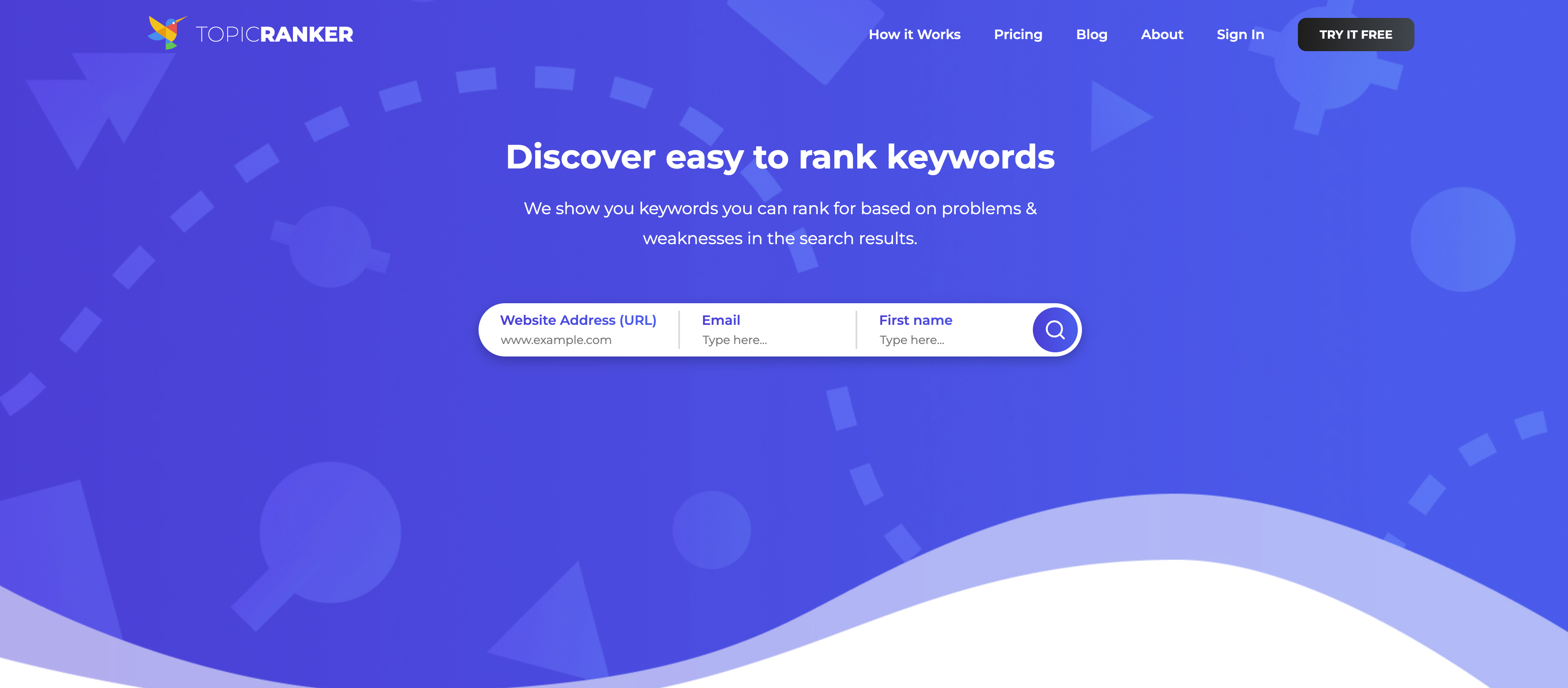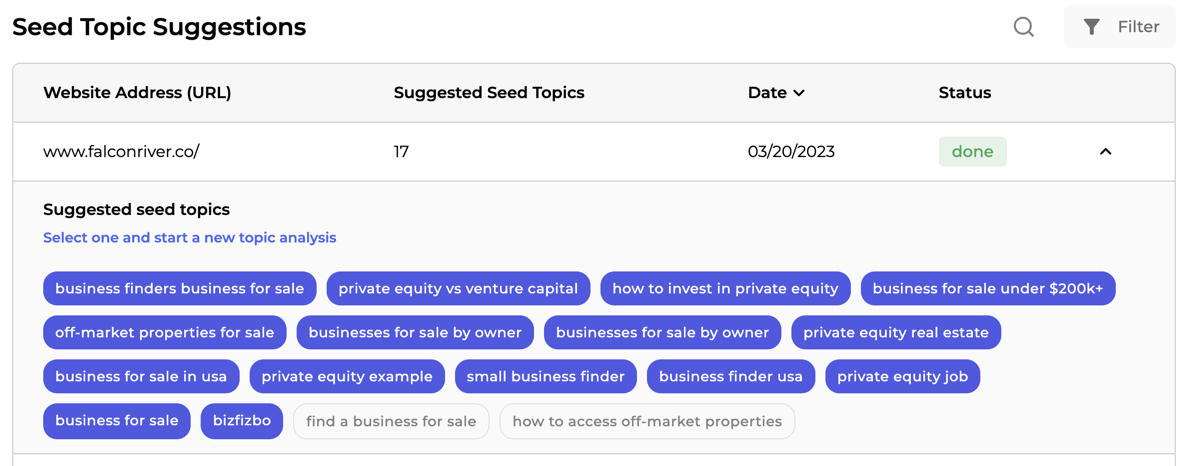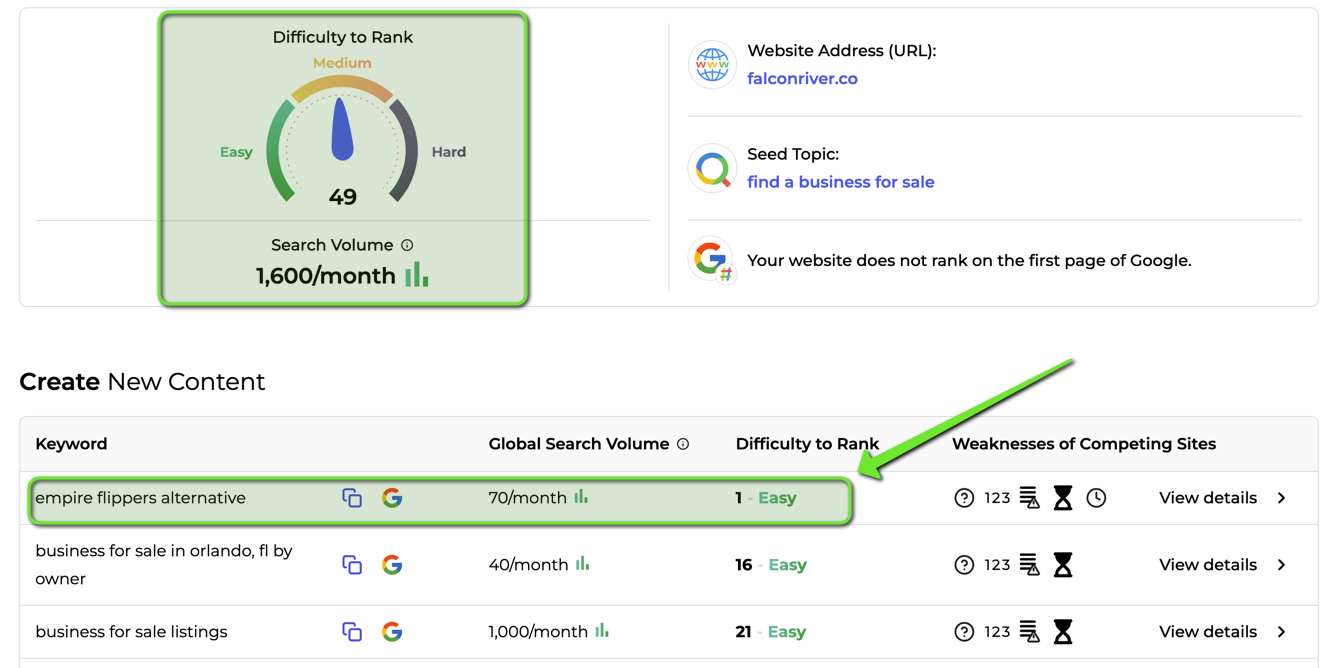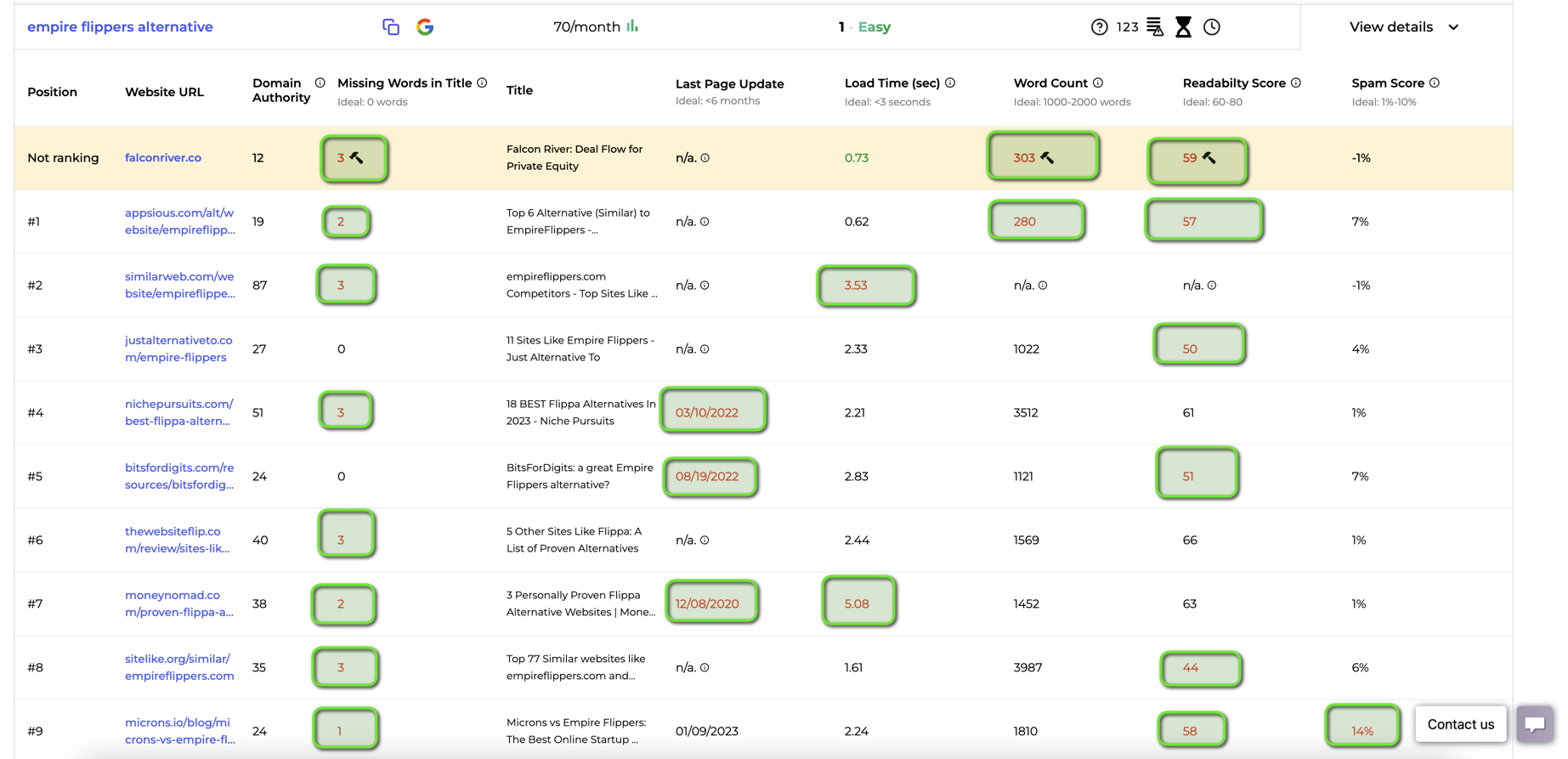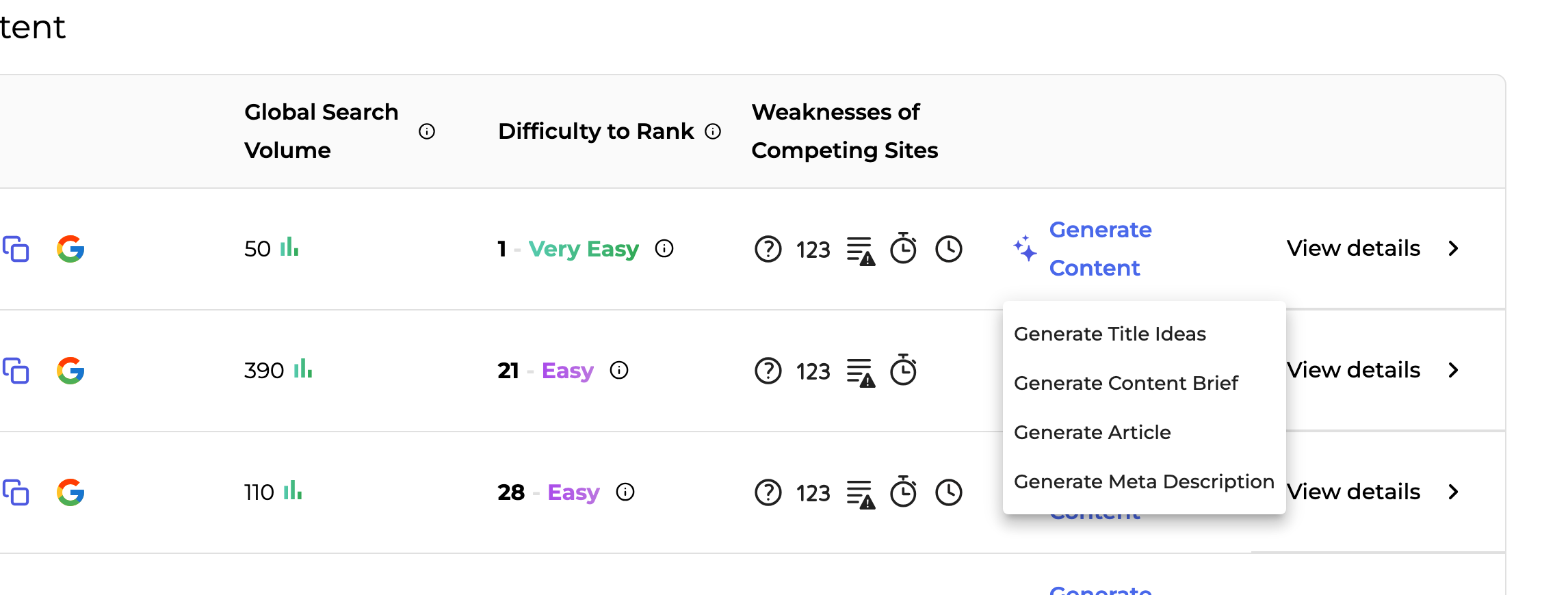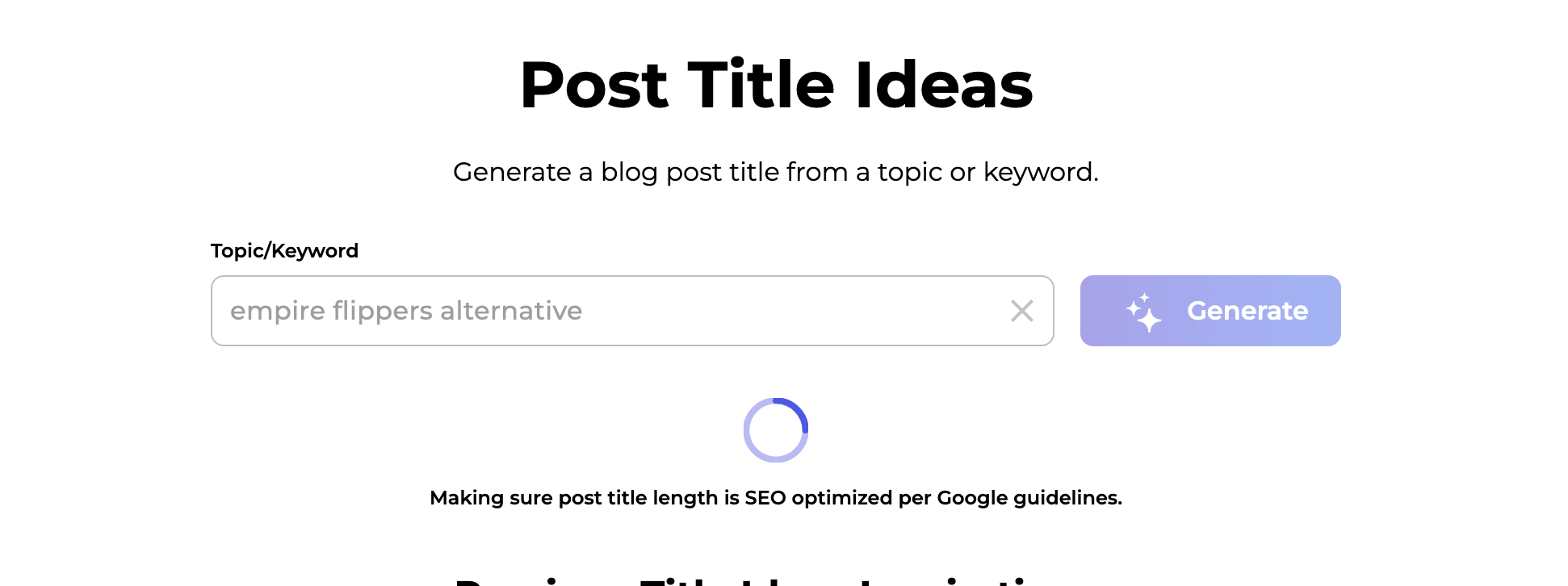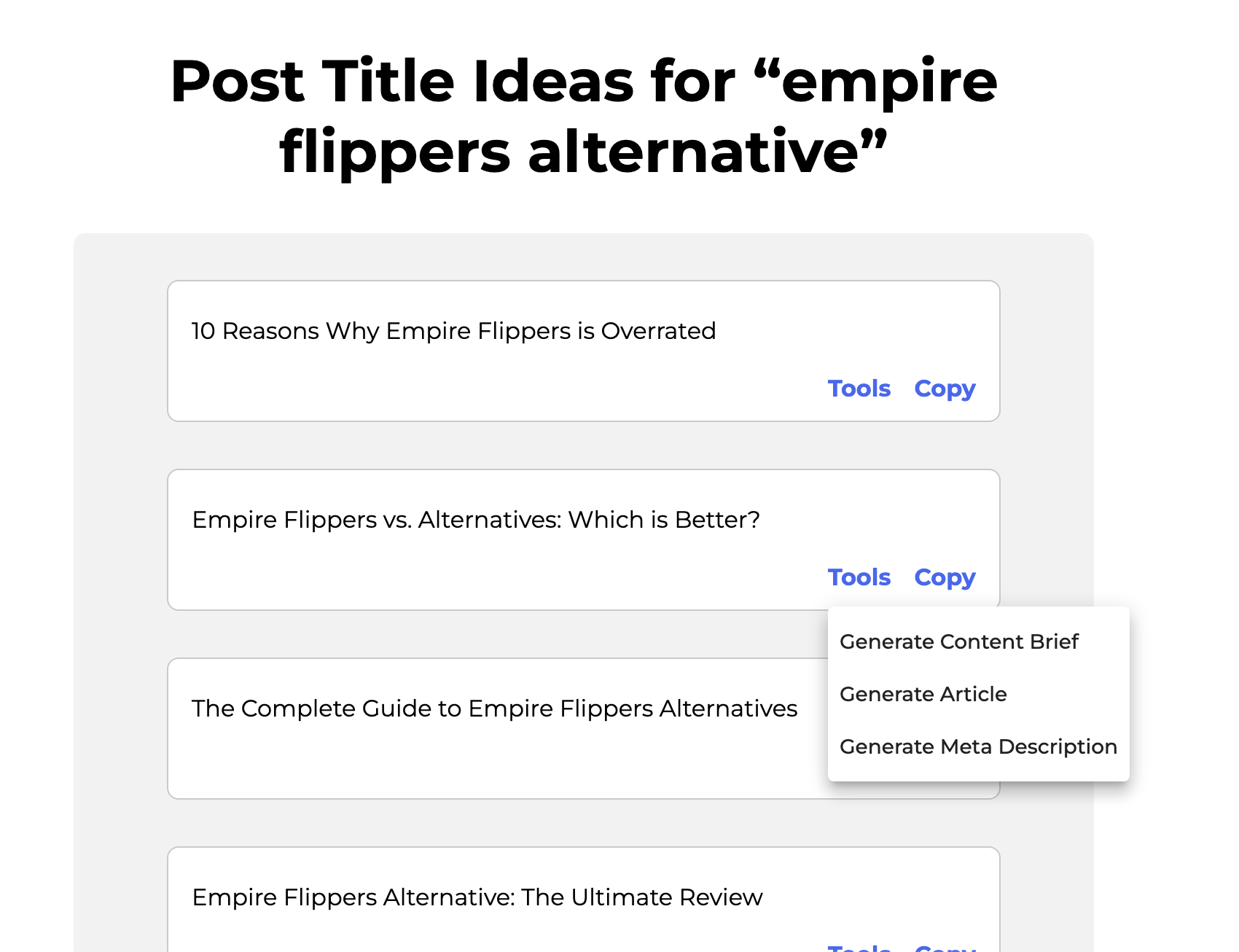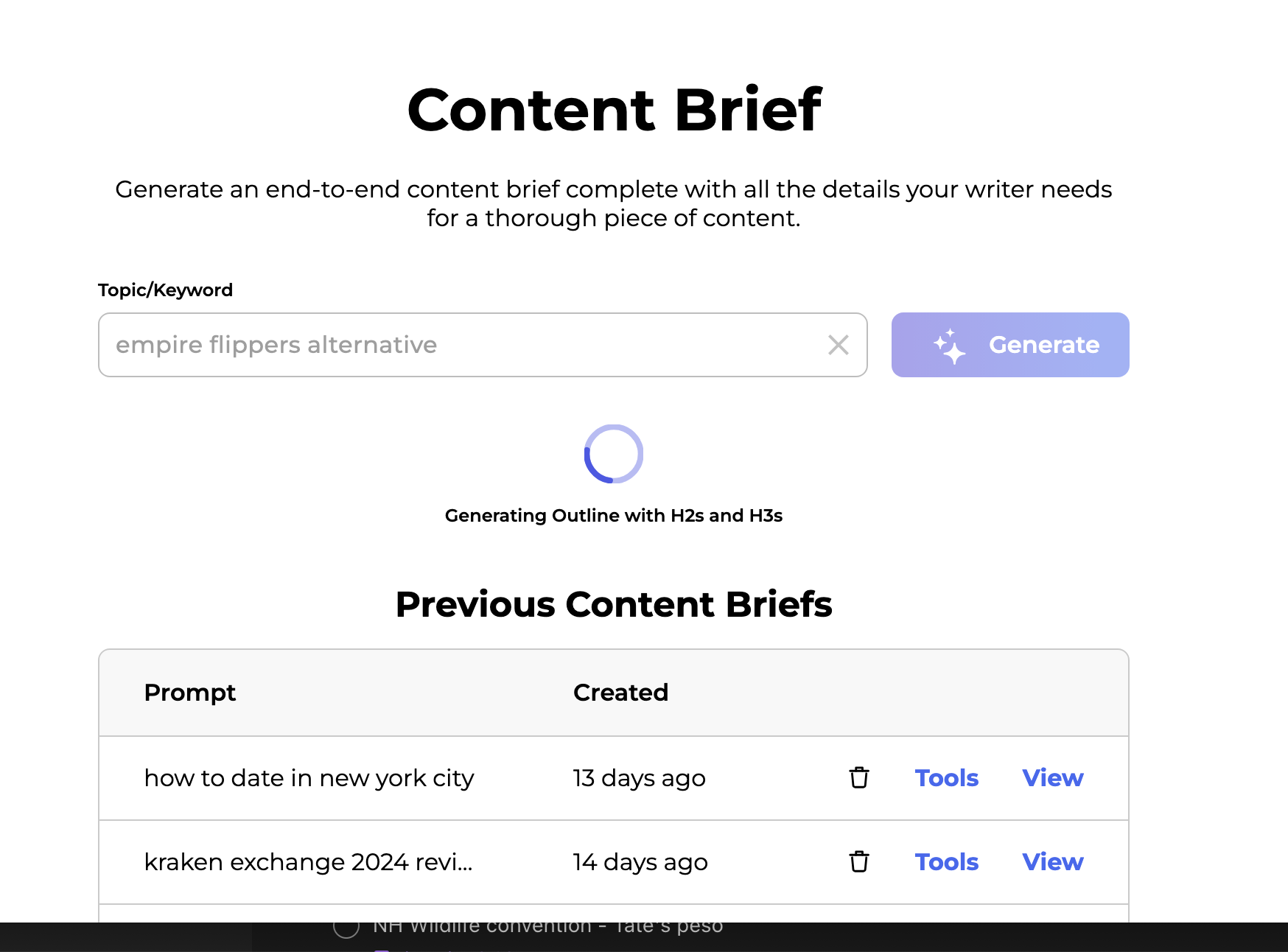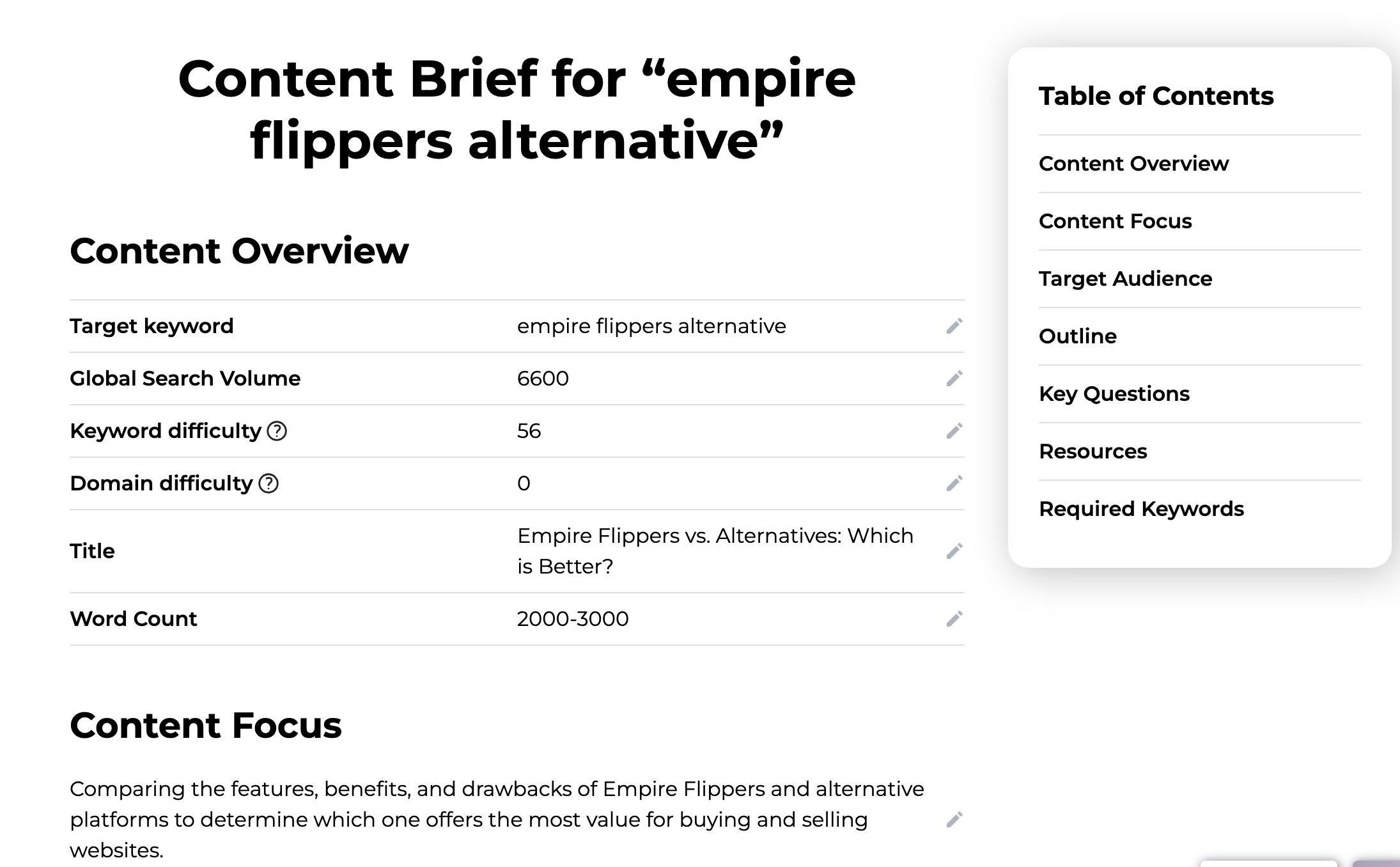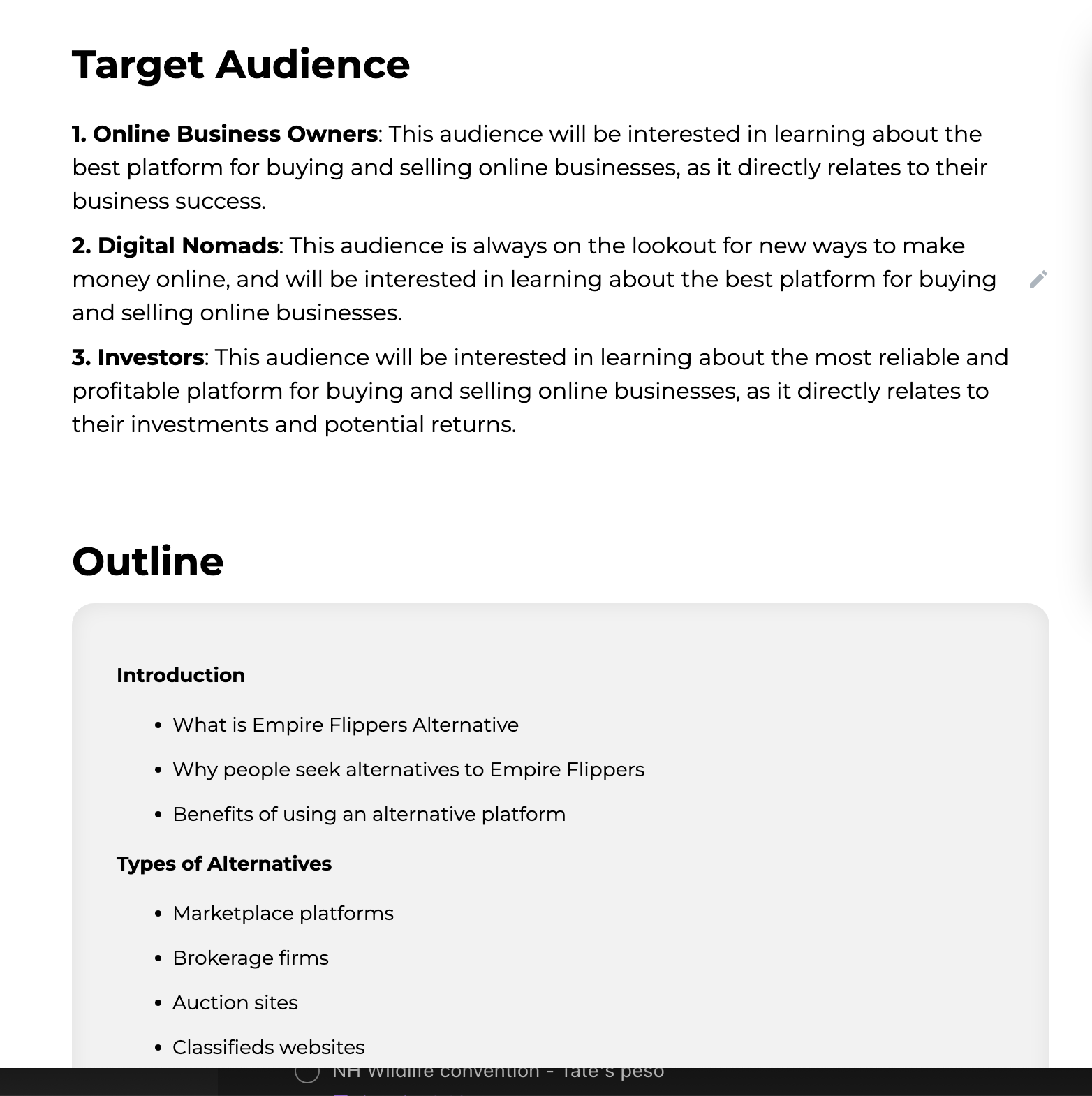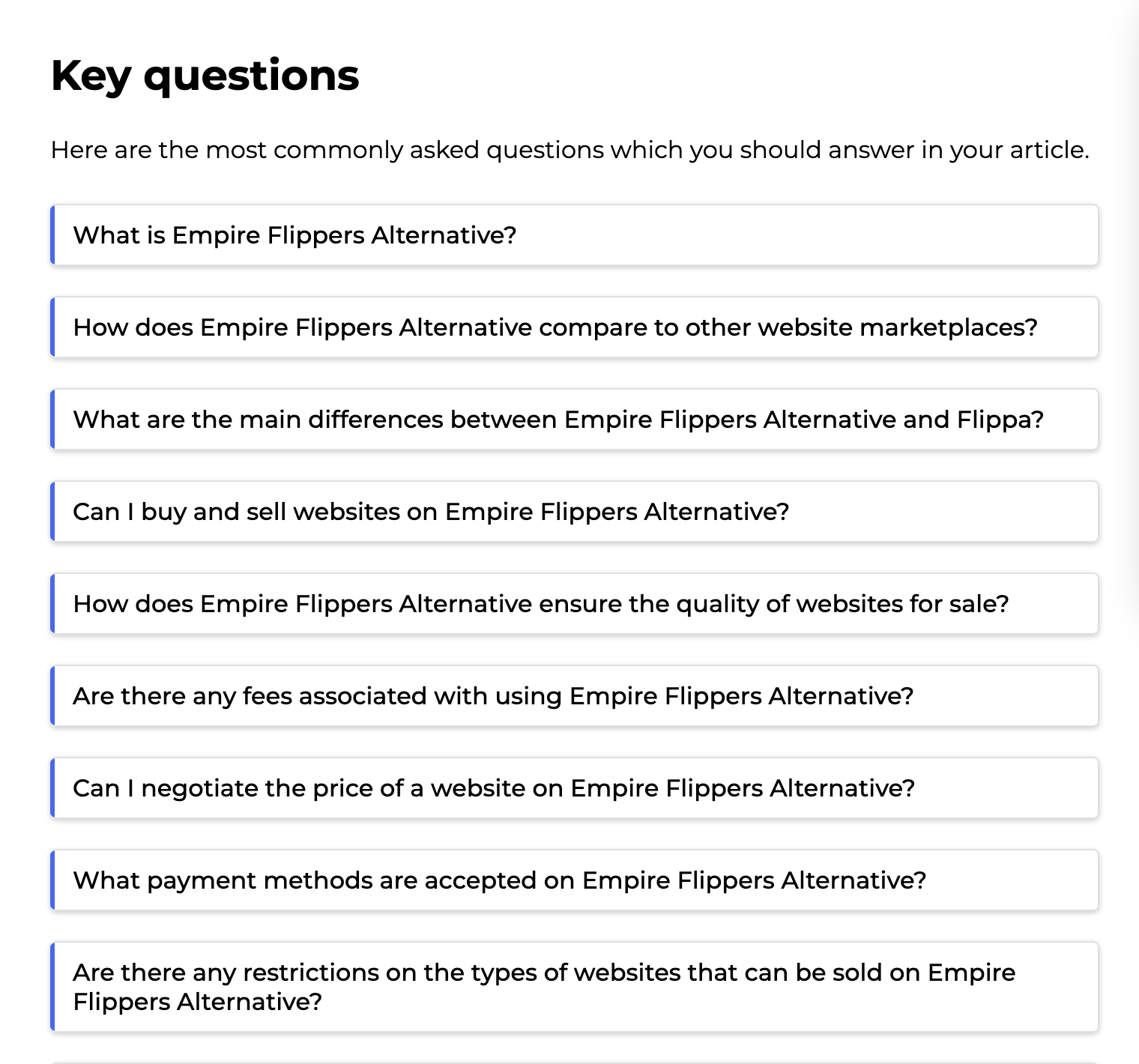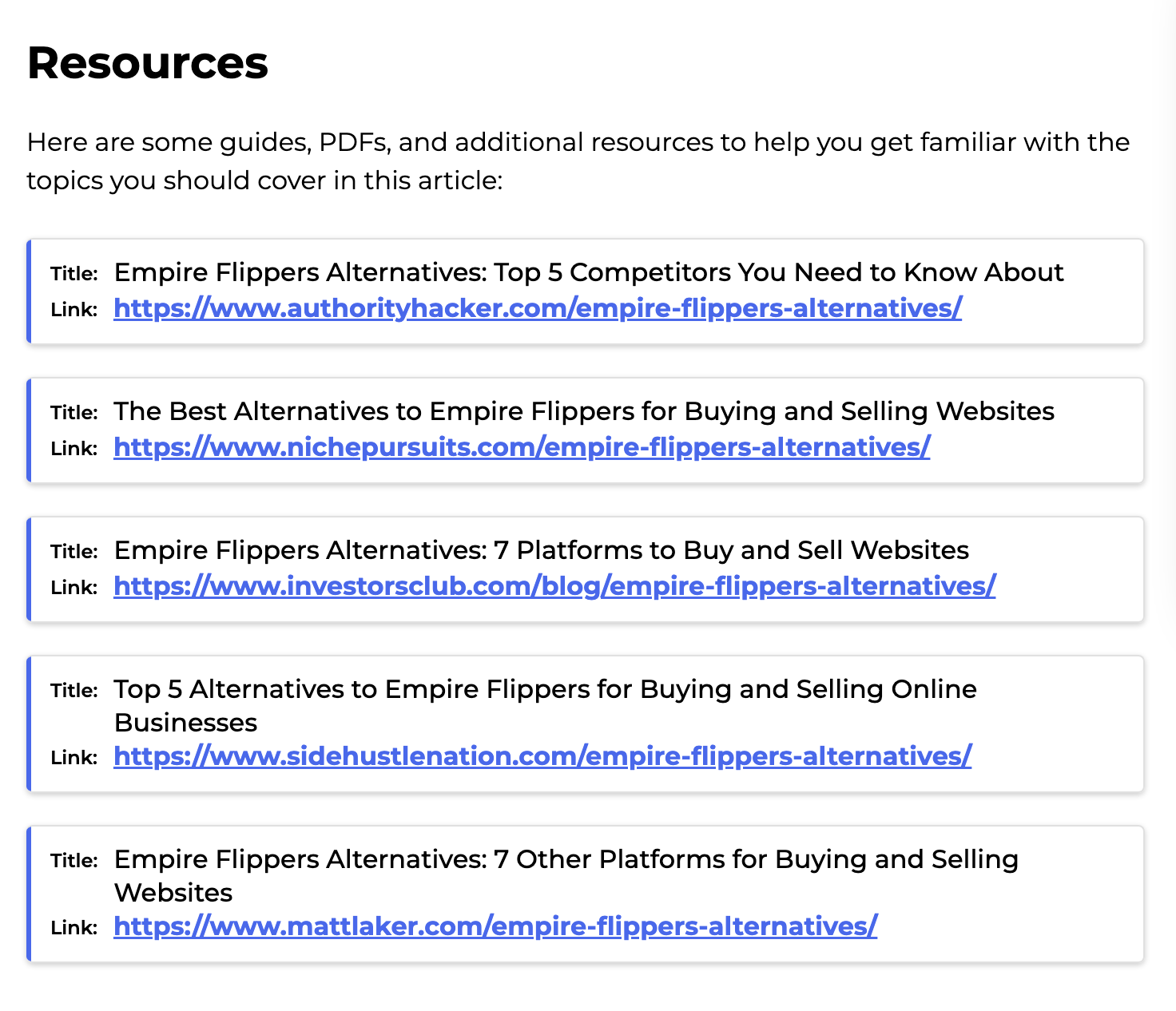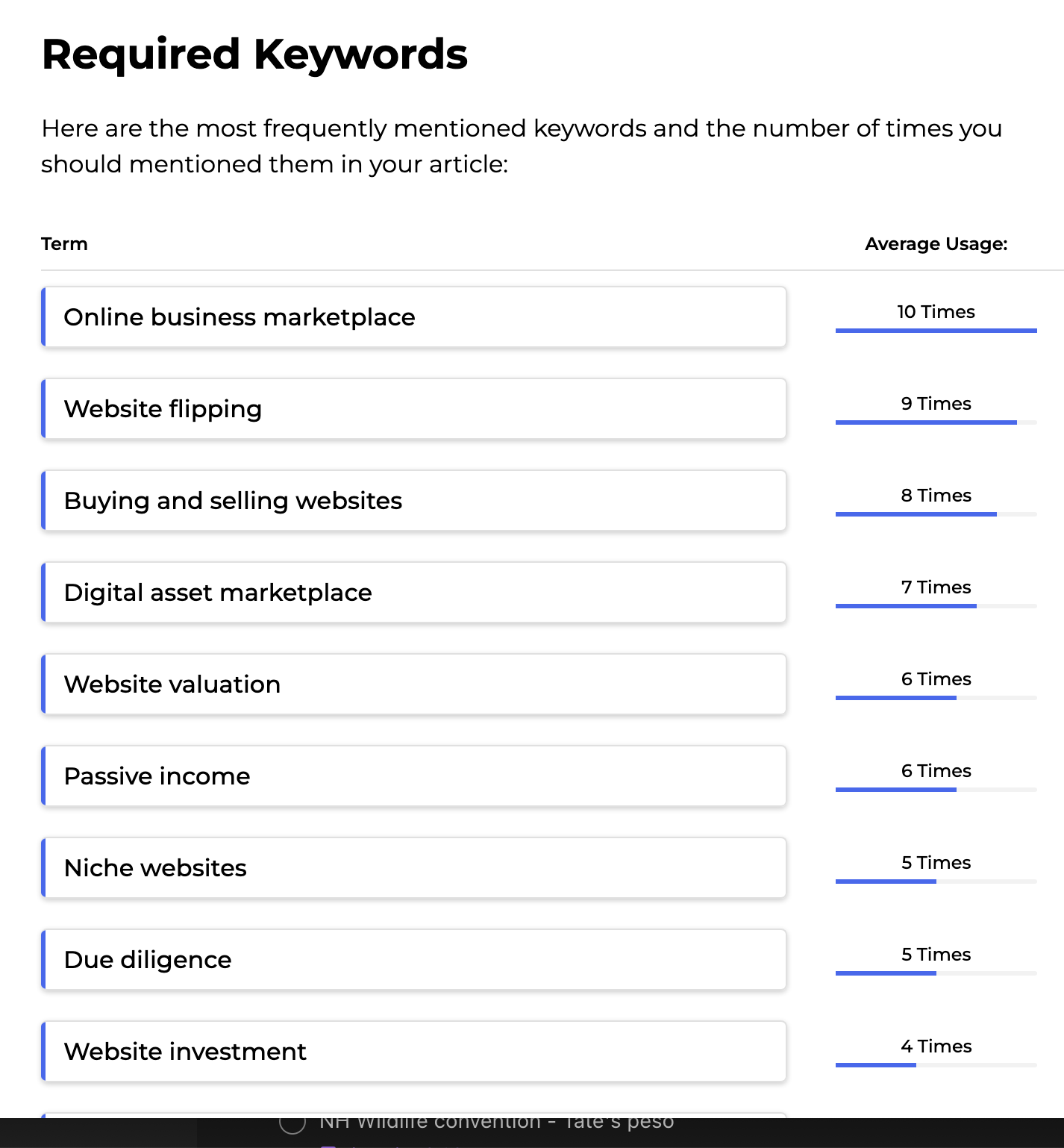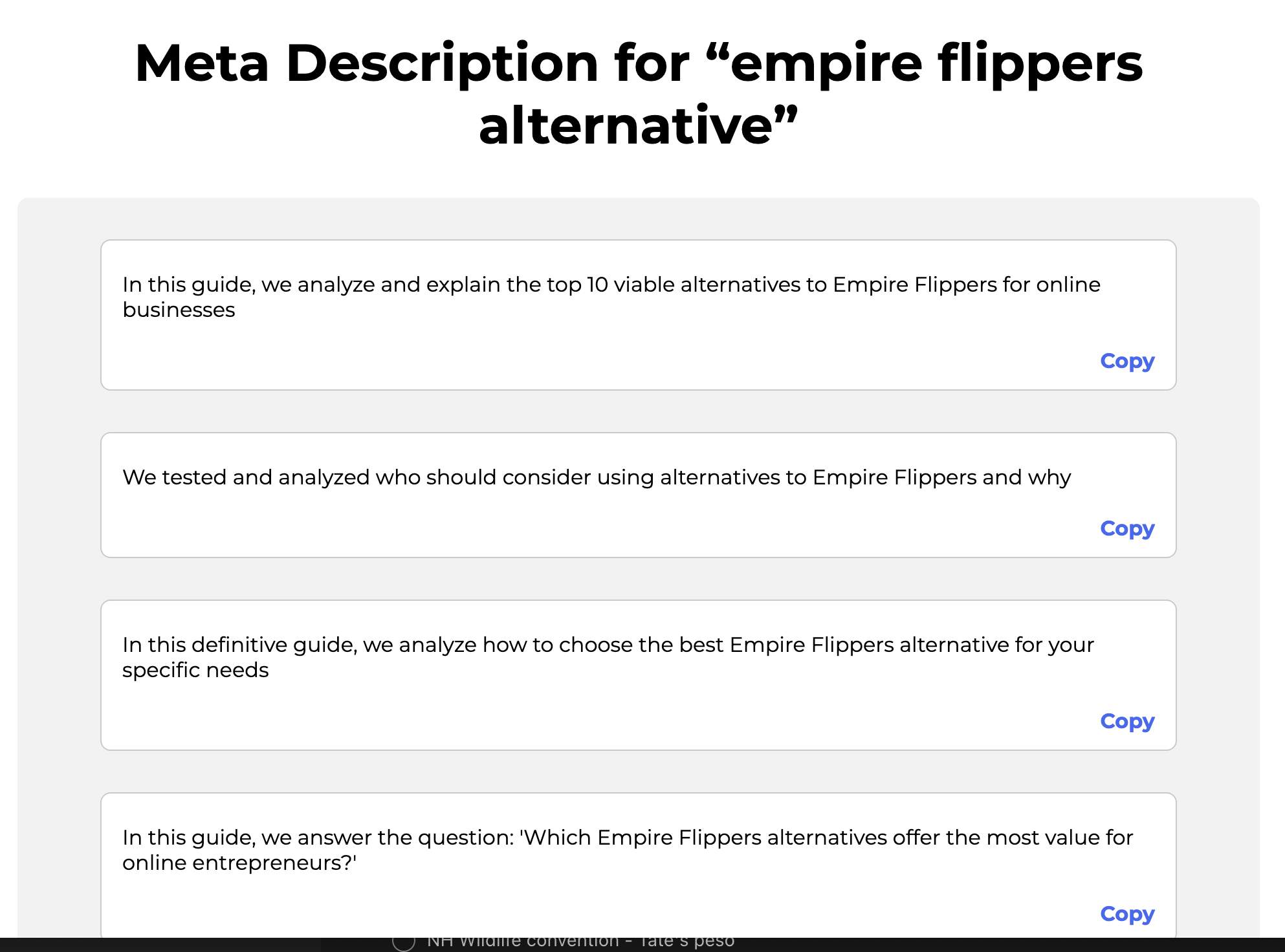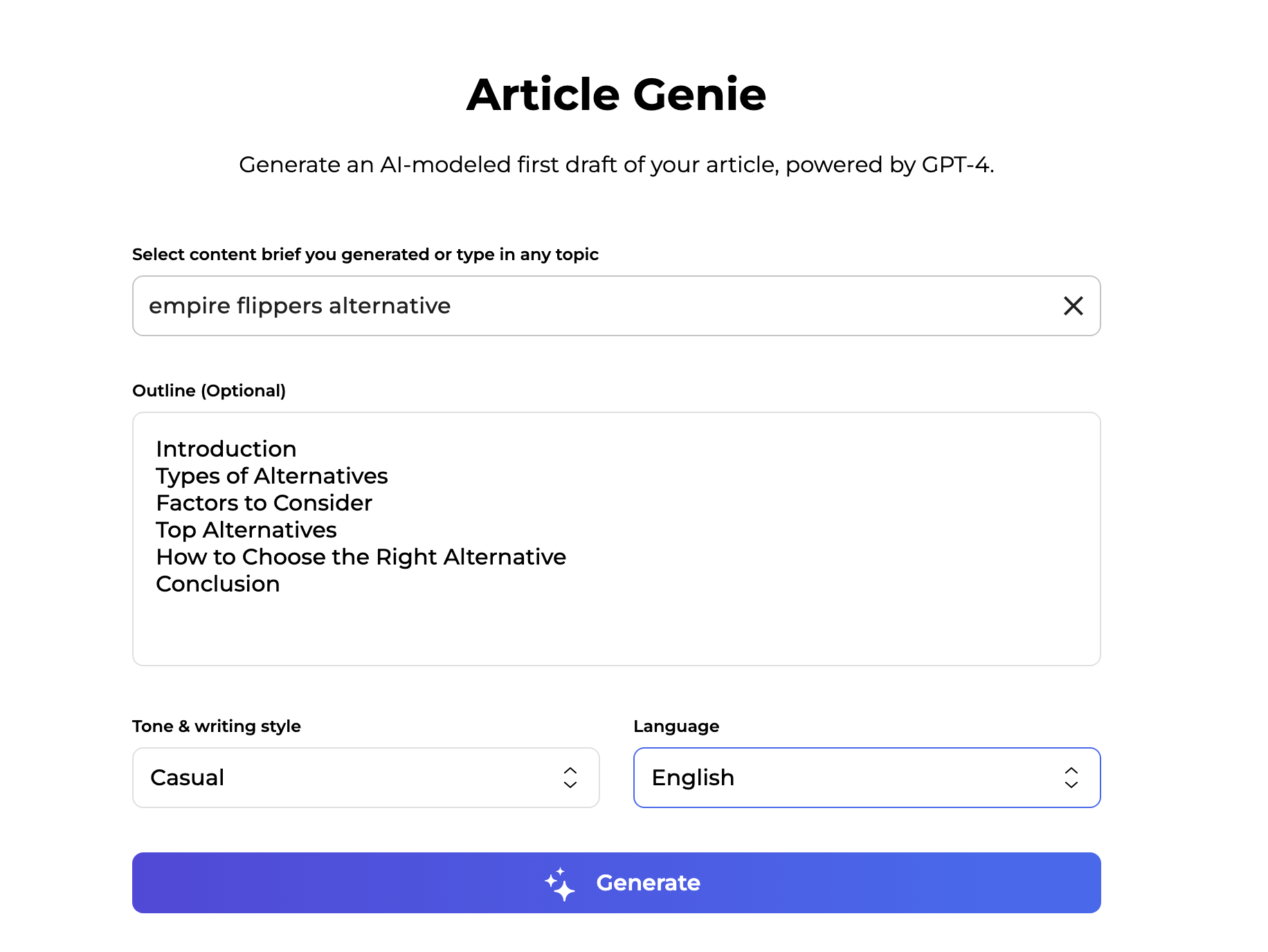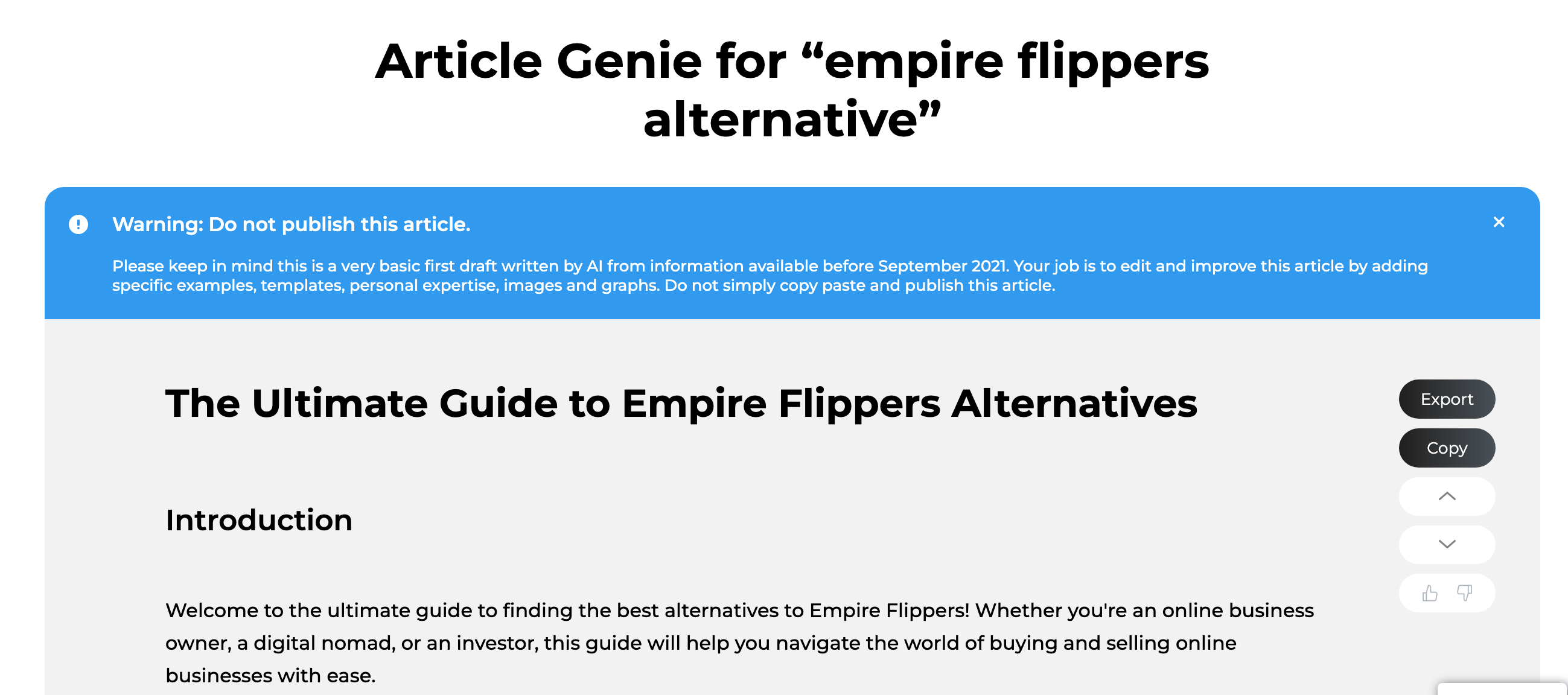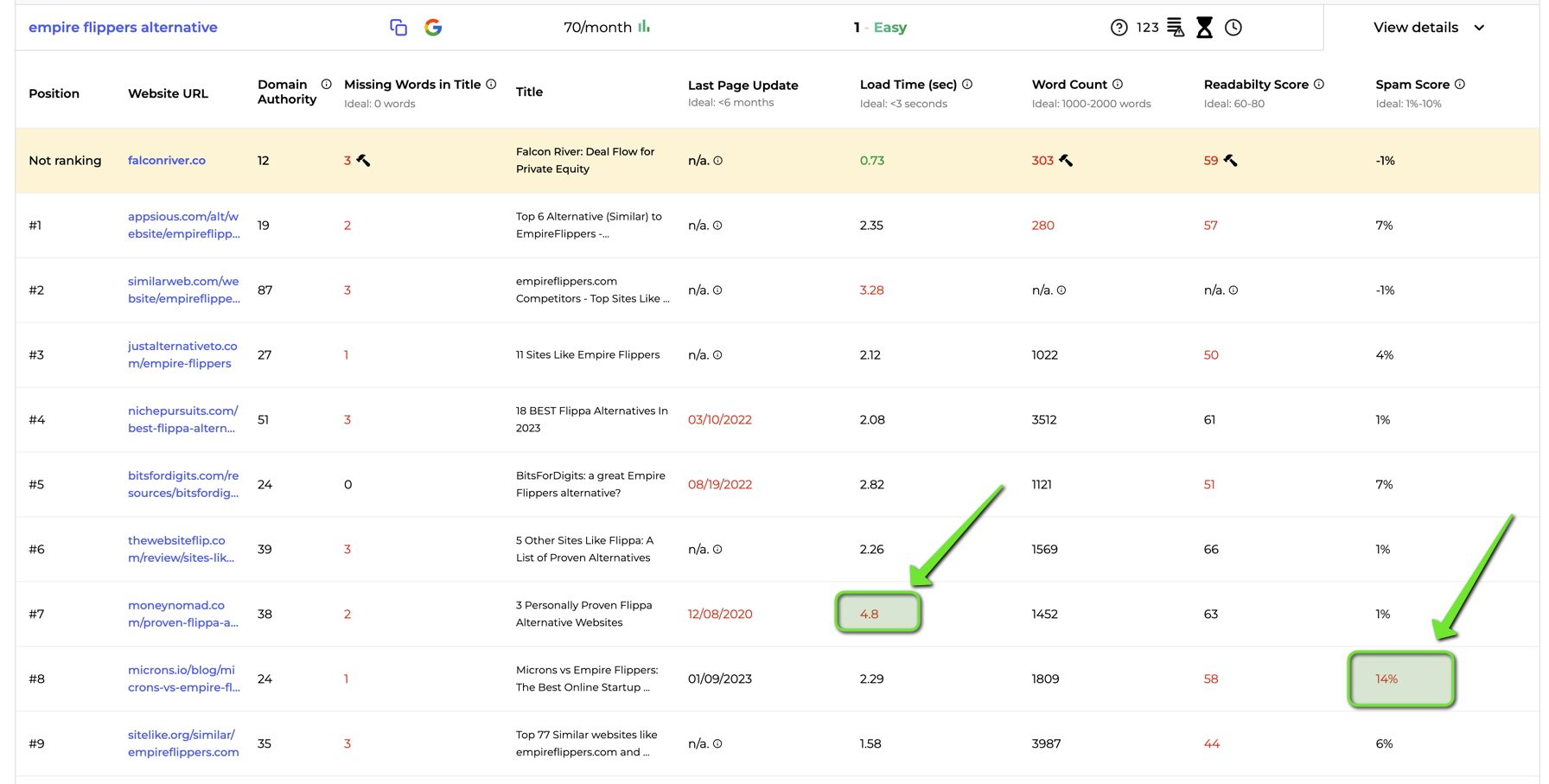Majority of keyword tools such as Wordstream, Ubersuggest, SemRush, Ahrefs, Wordtracker suggest keywords based on keyword difficulty scores.
That’s a BIG problem because you have NO IDEA if the keyword you are going after has actual problems or weak spots on SERP (search engine result page).
TopicRanker sift through millions of search results to find and suggest keywords with weak spots on SERP.
In this tutorial we’ll show you step by step how to use TopicRanker to easy to rank keyword ideas with weak spots on SERP.
Ready? Let’s roll…
Prefer a video walkthrough? Check out this seven-minute overview explaining how TopicRanker drives results for your business 👇
Step #1 Enter Your Website URL
If you don’t have an account yet sign up for an account on TopicRanker, plans start at $19/mo and there is a 30 day money back guarantee if you’re not satisfied.
The first step is to enter your website URL and select language and country.
Generally it’s best to just enter your root domain.
Finally make sure to enter a seed topic you want to rank for, it’s best to be niche and specific, not general.
Example: how to find a broker to sell my blog
For the purpose of this tutorial, we’ll be analyzing the website falconriver.co — an online brokerage that helps people buy and sell businesses. Think of it as an alternative to marketplaces like Empire Flippers, Flippa, and MicroAcquisitions.
Since we are unsure about which seed topic to plug in to the search we use the TopicRanker Suggest Seed Topics tool. Plugging the site into TopicRanker gives us a starting point — our robots uncover multiple ‘seed topics’ which we can use for further research.
What’s a seed topic you may ask? It’s one of the building blocks of keyword research. For example, let’s assume that you run a store selling gym equipment. Using that seed topic, we can identify other related keywords such as home gym, kettlebells, and squat racks. These will help you finetune your research.
For this tutorial, let’s select ‘find a business for sale’ as it is one of the seed topics that TopicRanker identified which is relevant to Falcon River.
To reiterate, the seed topic ‘find a business for sale’ is not the end keyword we suggest. Our robots believe this is a topic worth investigating further since it’s relevant to the business. TopicRanker will make further analysis on this topic, with the aim to uncover relevant keyword suggestions and SERP weaknesses.
We select the seed topic and type the following in to the search:
Domain: falconriver.co
Seed topic: find a business for sale
Language: English
Country: United States
Once it’s all entered just click search button.
Step #2 Review Keyword Ideas
As we mentioned above TopicRanker is NOT like most keyword research tools. Instead of just relying on keyword difficulty scores TopicRanker uses SERP analysis to find keywords with weak spots in search results.
For example here is an example of an output from TopicRanker:
TopicRanker report gives you keyword suggestions that have an actual weak spot and problem in SERP. We pinpoint the actual weak spots on SERP which we found for the specific keyword:
Each icon refers to a specific SERP weakness:
❓—> missing keywords in the meta title
🔢—> low word count for primary result
🟰—> poor readability
⏳—> page loads very slowly
🕜—> page is outdated
Note that this isn’t the entire list — there are plenty more keyword suggestions, we are just singling out a few to show you how to interpret the results.
Step #3 Interpret Your Keyword Report
Click on “View Details” to see the entire SERP for the keyword suggestion and the exact weak spots we found:
TopicRanker knows this is the best opportunity keyword for FalconRiver, due to these specific SERP weak spots.
There’s a real opportunity for FalconRiver to dive in and attack this search query — it’s poorly optimized, has many weak spots and the chances of ranking are excellent.
Step #4 Generate Content with AI
TopicRanker allows you to generate SEO optimized Titles ideas, Meta description tags, complete content briefs and first draft of the article right from the keyword report.
Click Generate Content:
Select Title Ideas and TopicRanker will start generating Title Ideas for you…
As you look through the choices for a good SEO optimized title you pick on and generate a content brief for your writer to start writing the article:
TopicRanker goes to work:
Takes a few seconds to generate a content brief:
You can use TopicRanker to generate meta descriptions:
and write the first draft of the article:
Here is the output:
Explaining SERP Weaknesses
As we’ve touched upon multiple times already, our primary aim is to help you find weaknesses and problems in the SERPs.
But what are these weaknesses and why do they matter?
Let’s take a closer look.
1. Missing Keywords in Meta Title
The Meta Title is the headline for each webpage — one that shows up in the search engine results page.
Relevant keywords in the meta title help both search engines and humans understand the page’s content.
Irrelevant or missing keywords reduces clickthrough rate and leads to a frustrating search experience.
For example, let’s examine the ‘empire flippers alternative’ search query — which TopicRanker determined had missing keywords in the top-ranking results.
This screenshot is a live SERP example — as we notice, the second and fourth top ranking results don’t have the keywords we’re looking for.
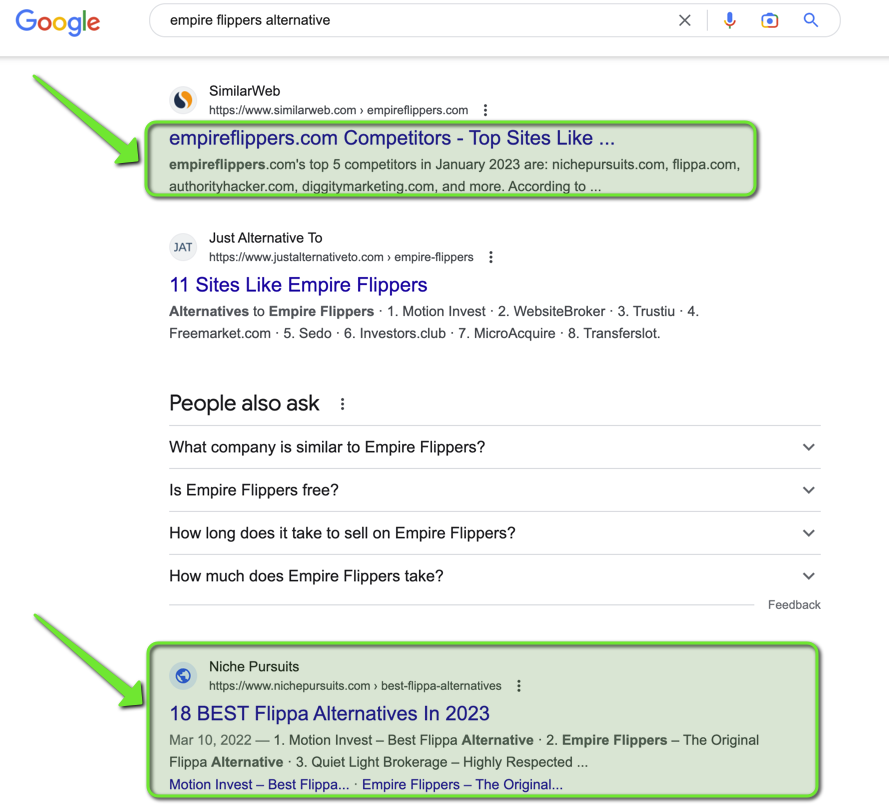
SimilarWeb’s page is about competitors — similar to alternatives, but not an exact match.
And Niche Pursuits, the fourth-highest result, talks about Flippa alternatives — meaning it’s not what searchers are looking for.
Key Takeaway: There’s a search intent mismatch — giving you the opportunity to capitalize!
2. Word Count
An ideal length for articles to rank well on search engines is anywhere between 1,000 to 2,000 words.
More content is fine, too, but a low word count suggests that the content is thin and won’t provide the best answer for search queries.
When examining the #1 search result for ‘empire flippers alternative’, it’s clear that the article needs more work.
The first thing you see when you land on the page are mostly advertisements.
As you scroll down, the rest of the article isn’t much better either:
It’s mostly poorly-written text with little to no explanation of why these sites are recommended as an empire flippers alternative.
Key Takeaway: Thin content leads to a frustrating search experience. Google ranks this page because it can’t find better ones on the internet. A glaring weakness in the SERPs!
3. Content Freshness & Results From Forums
The more recent the article, the more it is valued by search engines.
Why? Because posts over six months old can have outdated information that’s perhaps not as relevant as it was when the article was first published.
For example, the #7 ranking article on ‘empire flippers alternative’ is a well-written post that’s nearly 1,500 words long.
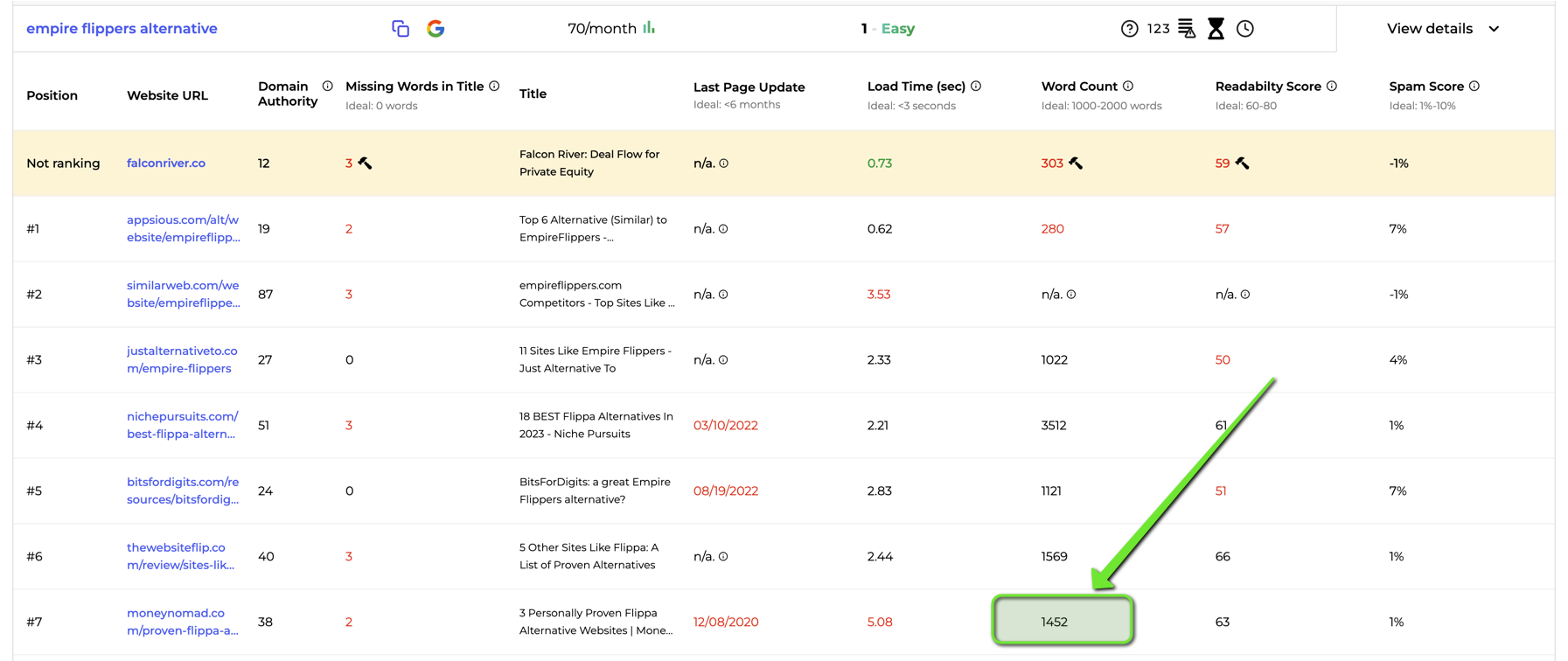
What’s holding it back could very well be that it was published in 2020 and never updated since.
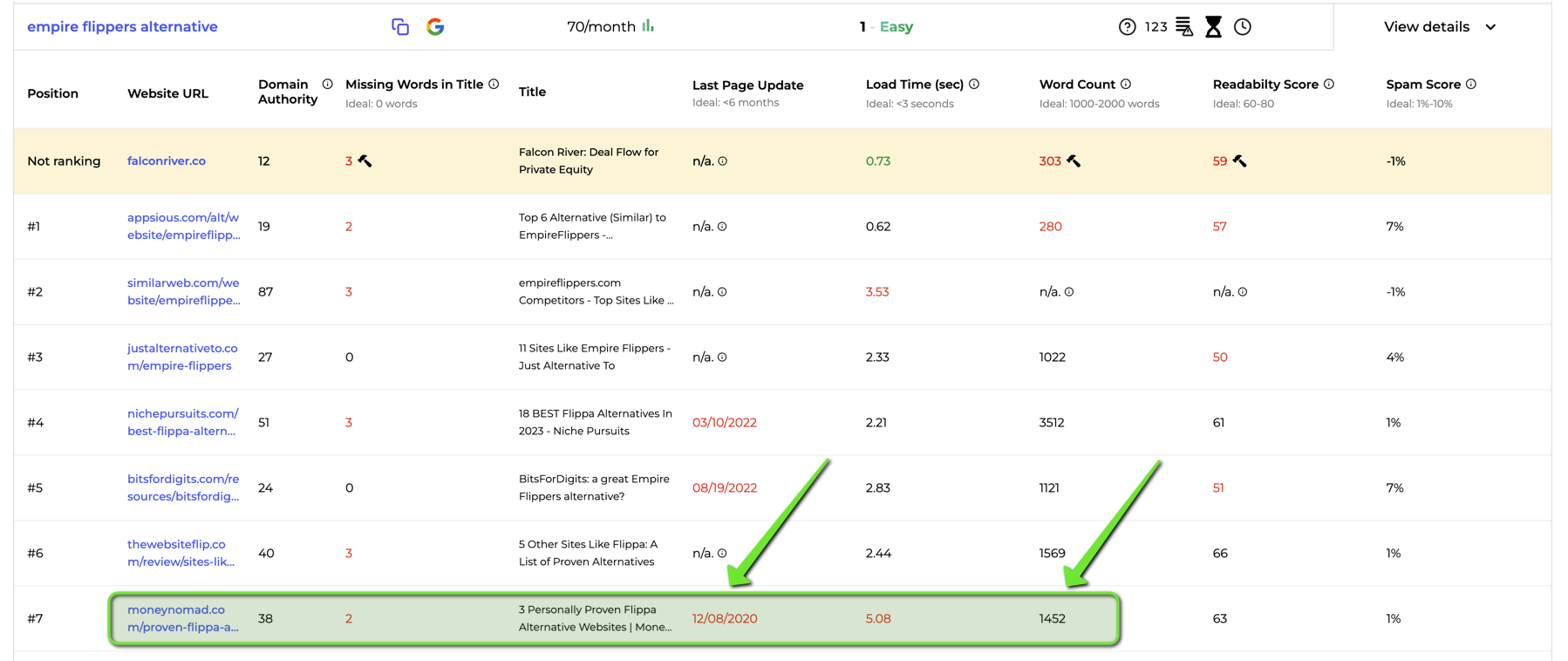
Yes, the article has other issues like missing keywords and longer load times. But content that’s over two years old has likely started to become stale — and isn’t deserving of a high spot in the SERPs anymore.
Key Takeaway: Capitalize on content that hasn’t been updated in a while. Present the most up-to-date and in-depth result and the search engine algorithms will reward you.
Another weakness we highlight at TopicRanker are results from forums, such as Quora and Reddit.
Search engines tend to deprioritize these pages, because they’re often short, succinct, and without supporting research.
For example, the #5 ranking query for ‘empire flippers review’ is a page from Quora.

That’s another SERP weakness, and an opportunity for you to pounce on.
Key Takeaway: Results from forum sites are a leading indicator of SERP weakness. Move on them fast!
👉 Enjoying This TopicRanker Tutorial? Sign Up For Your FREE Keyword Report!
Don’t Sleep on User Experience
Getting to the top of the SERPs isn’t just about the right keywords, or an optimized meta title.
Keywords help, of course, but the best content is that which delivers a superior user experience.
Part of that is making sure that the page loads within three seconds and contains unique, well-researched content. Any site that takes over three seconds will likely see high bounce rates, or users closing the tab.
That’s why we aim to show both page load speeds and spam scores in our SERP weaknesses report.
Ever since Google moved to mobile-first indexing, it’s more important than ever before to keep an eye out for page load speeds.
One way of doing that is to compress images before uploading with a tool like TinyPNG.
Another is to cut out any unnecessary Javascript on your page.
Spam score is a way to understand whether the site is at risk of being penalized by Google.
Key Takeaway: Optimize for stellar user experience — write great content and build a responsive website. Never try to trick the algorithm with copy-pasted content, intrusive ads, and frequent pop ups.
👉 Enjoying This TopicRanker Tutorial? Sign Up For Your FREE Keyword Report!
Creating Great Content
We’re reaching the end of our TopicRanker tutorial, but the work isn’t done. By now, you should have a good idea of the topics relevant for your website and SERP weaknesses to address.
The next step is to create world class content that satisfies search intent, incorporates relevant keywords, and provides a stellar user experience.
If you have any questions just hit the “Contact us” link and send us a note!
Osman Husein helps us educate TopicRanker customers with onboarding resources, email tutorials and articles on our blog.

